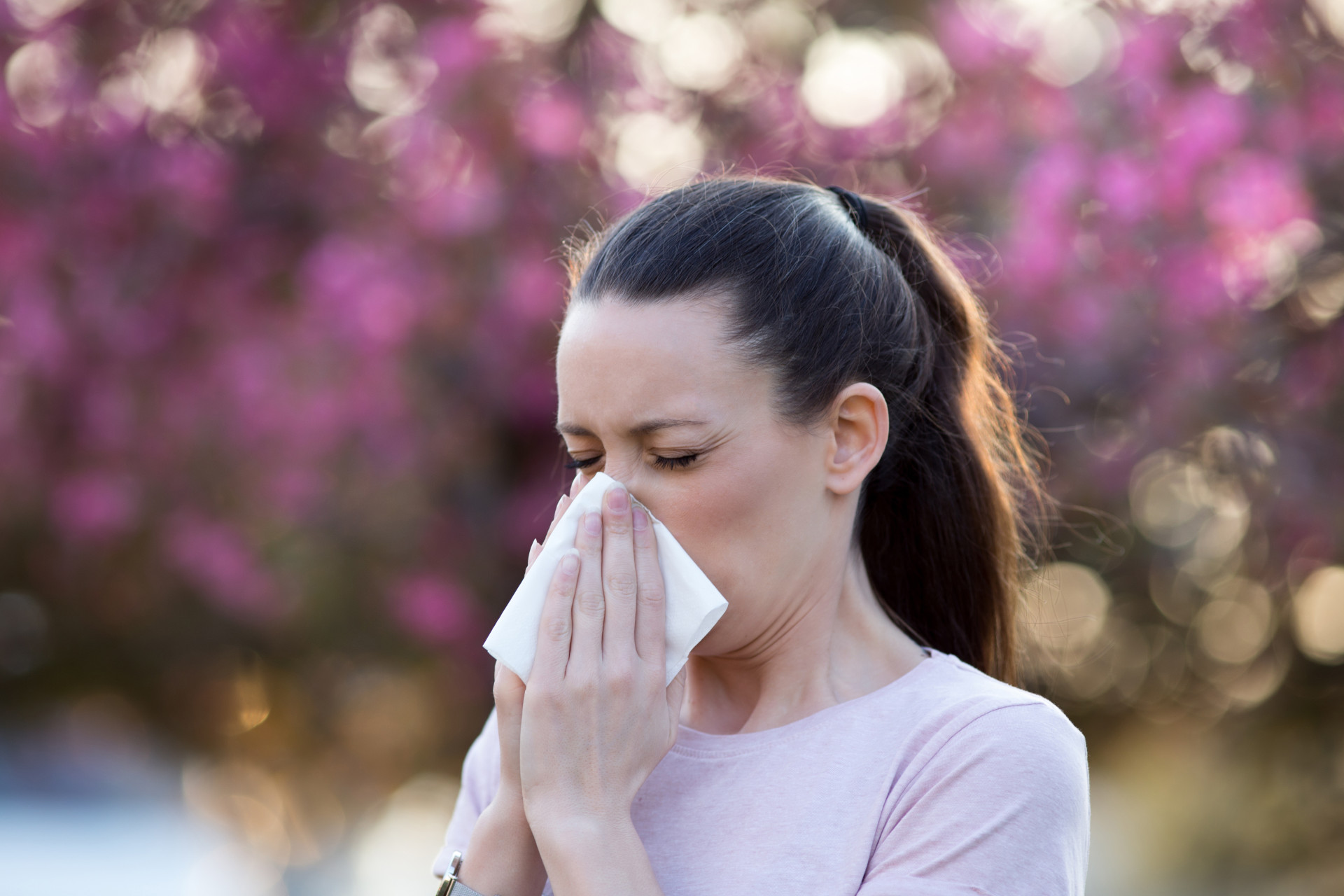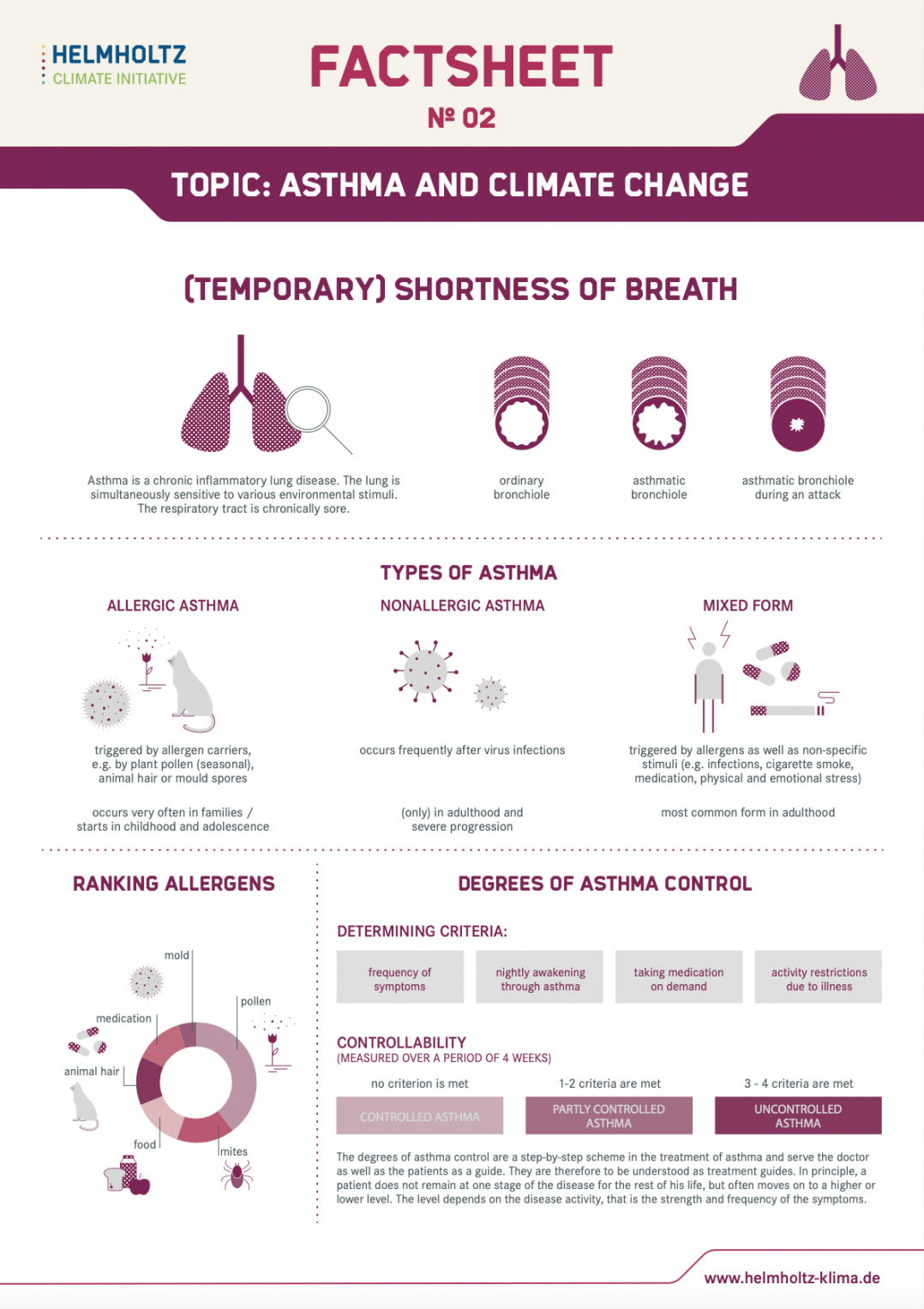Climate and health
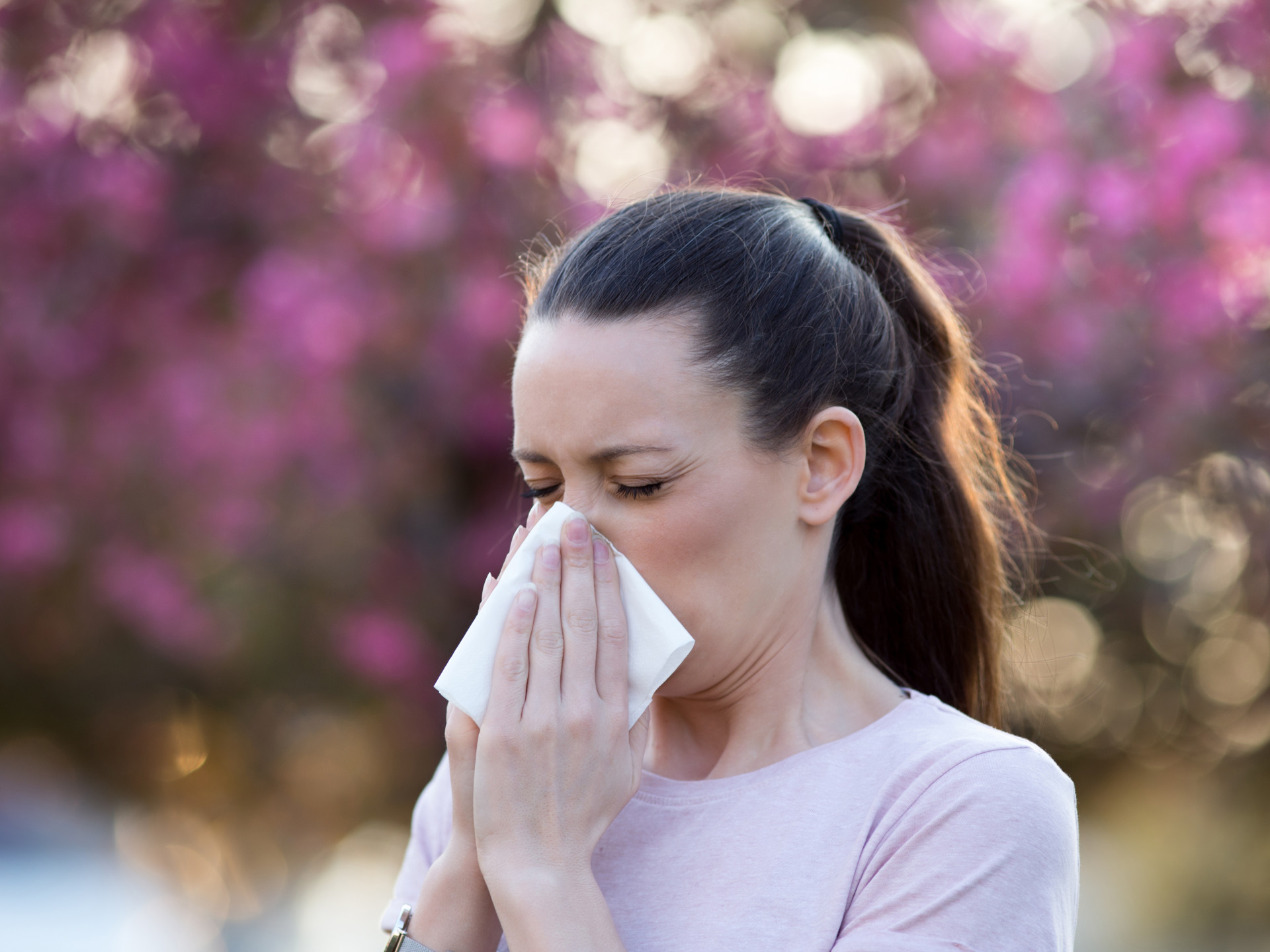
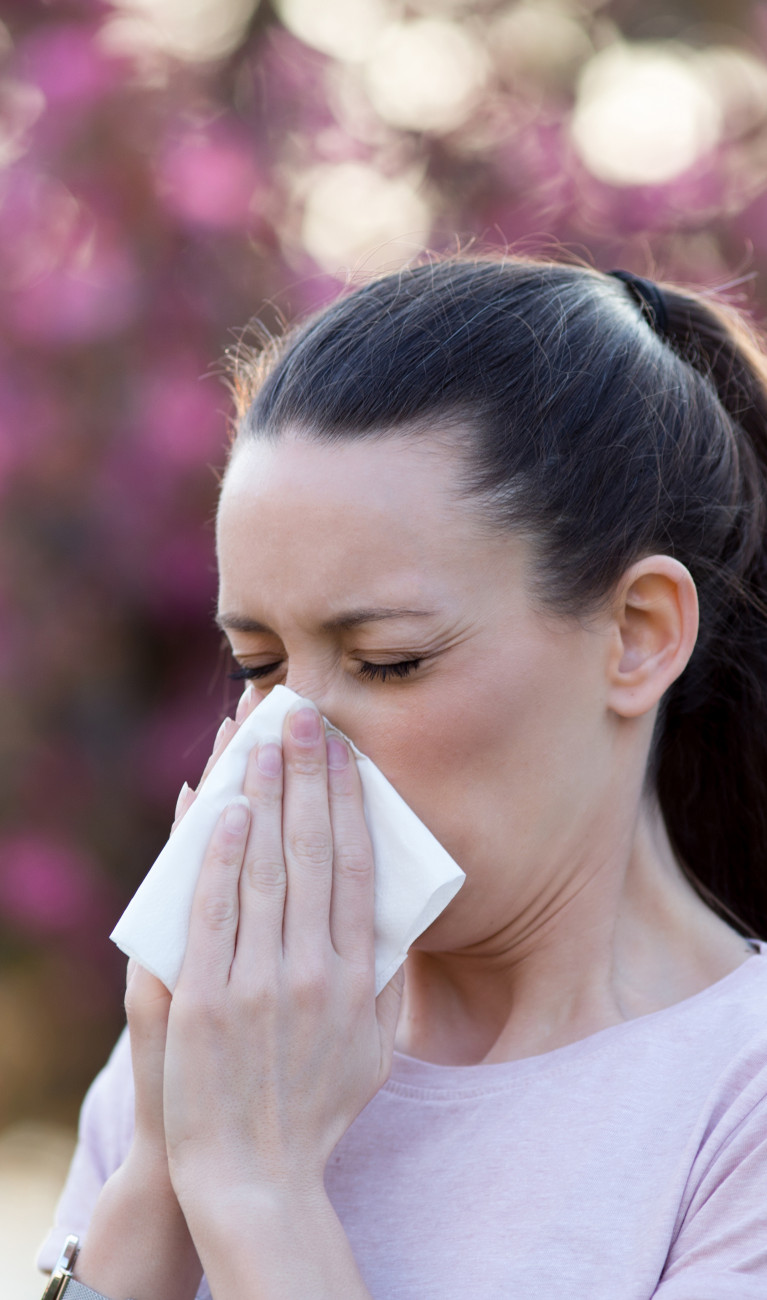
Climate change is a problem both for the environment and for human health. In a warmer world, heat, extreme weather events, allergies, and germs threaten to wreak havoc on our physical and mental well-being. The more we protect our climate and prepare for those consequences of climate change that are already unavoidable, the more we protect ourselves as well.
The number of hot days in Germany is rising, and more and more people are experiencing the consequences that go along with this in the summer: exhaustion, fatigue, headaches, and sleepless nights. But the health-related consequences of climate change don’t stop there. Medical expert Claudia Traidl-Hoffmann of the Helmholtz Zentrum München has spent many years studying this. She has recently written another book on the topic. In "Überhitzt" (Overheated), Traidl-Hoffmann and co-author Katja Trippel reveal the risks of climate change and explain how we can protect the health of our society and ourselves.
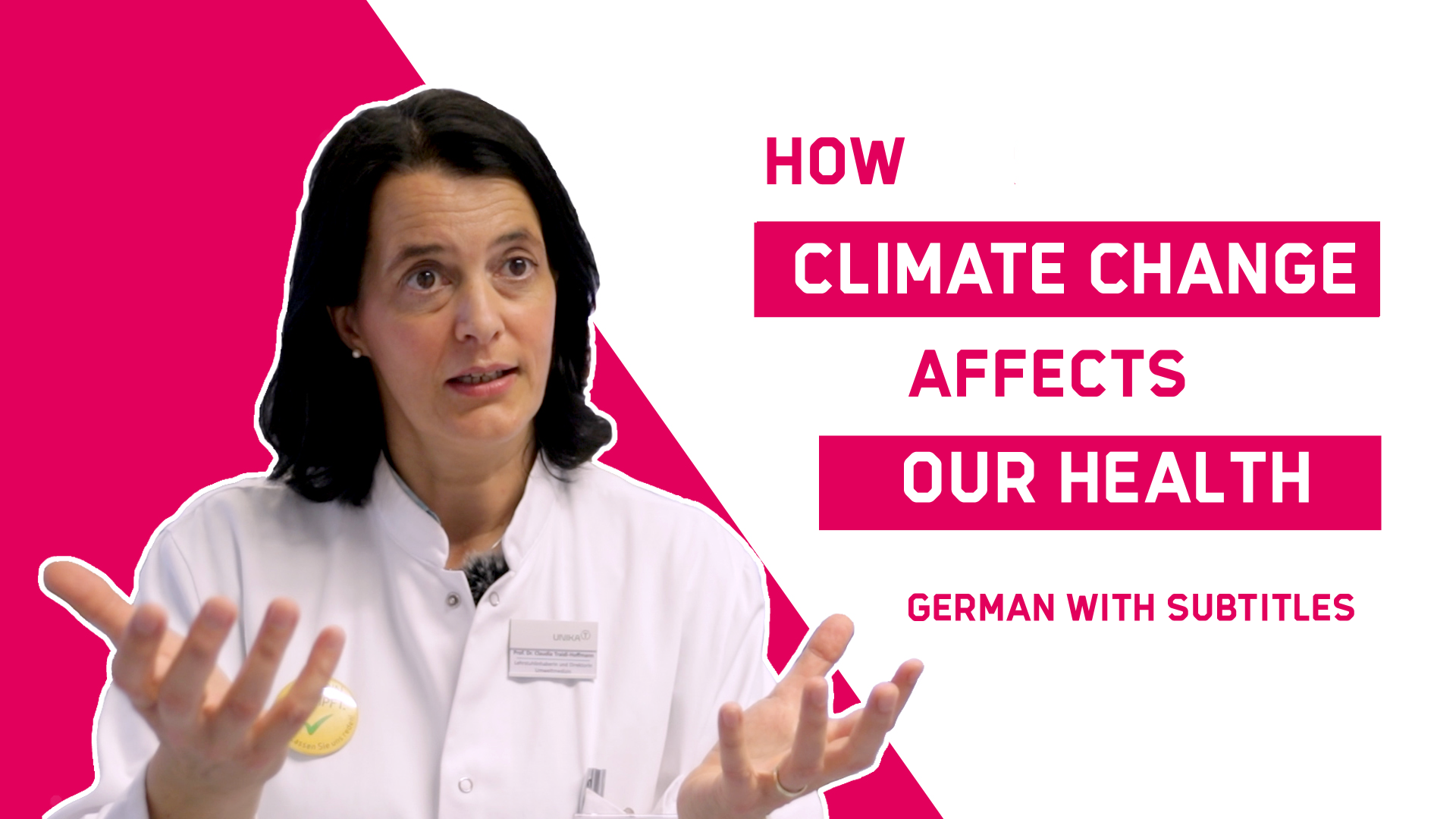
"How can you keep a cool head at 105 °F?", is the question posed by Eckart von Hirschhausen, who admits he can’t work well when it's hot. The physician and media host started the foundation “Healthy Planet, Healthy People.”
The impact of climate change on our health isn't only a matter of 100% concentration or keeping a cool head in conflict situations – but also of life and death. It is estimated that in the year 2018 20,000 people over the age of 65 died of heat-related causes in Germany alone – a tragic statistic that is likely to rise as climate change progresses. According to a recent estimate, roughly one-third of heat-related deaths observed in recent decades can be attributed to the increased strain caused by climate change.
The correlation between climate change and health is highly complex. The synergy between bad air, heat, and shifting seasons means unique risks particularly for urban areas. Heavy air pollution intensifies the negative effects of heat on our cardiovascular systems. What’s more, polluted air puts a strain on the respiratory tract and makes pollen impact more aggressive. One phenomenon that seems to appear more frequently due to climate change is so-called thunderstorm asthma: Climate change means larger amounts of pollen in the air throughout the year, creating real problems for allergy sufferers. For people with asthma, pollen is particularly dangerous during heavy storms and high levels of particle pollution. Climate-related heat waves and droughts lead to increased ozone levels and forest fires, meaning a further decline in air quality.
Increasingly frequent or intense extreme weather events also have a drastic impact on human health. In the case of flooding or storms, this can mean injuries, disease outbreaks, and even deaths. The strain of these disasters increases mental and emotional stress levels for survivors.
Heat waves, floods, and pathogens
The devastating heavy rains of summer 2021 shocked communities across Germany. In the particularly hard-hit Ahrtal region, 133 people died, and North Rhine-Westphalia saw a further 48 deaths. The extreme weather ravaged cities and local communities. Many people experienced some terrifying moments; many lost their homes and belongings. Events of this kind can cause symptoms of post-traumatic stress syndrome and lead some victims into poverty, which means an additional strain on health.
An additional problem: Along with their natural hosts, germs and pathogens push into new territories as a result of climate change. This means climate change could well cause mosquito-borne diseases like dengue fever or malaria to appear more frequently in Europe. Even today, ticks that carry diseases such as Lyme disease and tick-borne encephalitis (TBE) are now active year-round, with the result that infections are now also possible in the warmer winters. They may also spread further into northern Europe.
In addition, climate change may impact food security and peace, thus having indirect consequences for human health. Food and drinking water may become scarcer – e.g. due to droughts or the destruction of crops by pests. In regions hit especially hard by climate change, we may see the worst-case scenario of armed conflict and the resulting deaths, injuries, and human displacement.
people over 65 suffered heat-connected deaths
in 2018 in Germany alone.
Because the health impact of climate change can be so severe, several Helmholtz centers are conducting research in this area. In the "Infectious diseases and allergies" project, scientists from the Helmholtz Climate Initiative are investigating whether and how climate change is influencing allergies, asthma, or bacteria. With the help of data and computer models, they are working to gain reliable insights into these correlations.
The Helmholtz scientists also hope to develop preventive strategies, such as an early warning system for allergy sufferers. Annette Peters, who conducts her research together with colleagues at the Helmholtz Zentrum München (HMGU), is studying the effects of heat stress on the human body. As this expert explains, we can all take part in prevention at individual, medical, and even political levels. Heat action plans, Peters says, could reduce the strain of urban heat islands on the population, but – more than anything else – better climate protection is needed.
At the Helmholtz-Zentrum Dresden-Rossendorf (HZDR), scientists are working on an electronic nose for free radicals. Within the framework of an international partnership, the goal is to develop affordable nanosensors to detect atmospheric pollutants. These would be used to improve the detection of harmful particles in the atmosphere, since air pollution is considered a key factor in over 400,000 early deaths per year in the EU.
To prevent the effects of heat and polluted air on our hearts and lungs, scientists at the HMGU are cooperating with international partners for the EU project EXHAUSTION. The objective is to provide better protection for at-risk populations such as the elderly, infants, and people with chronic diseases or disabilities.
